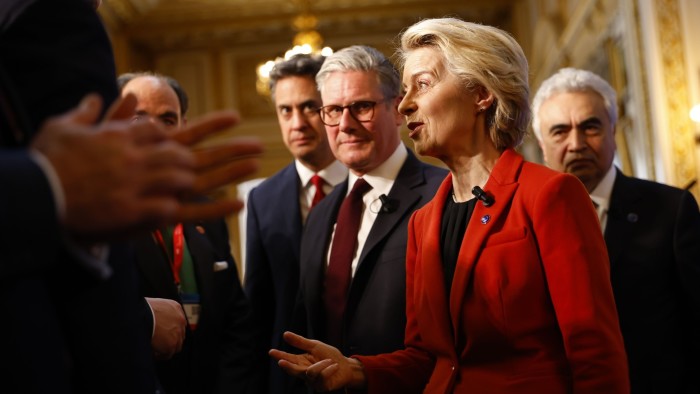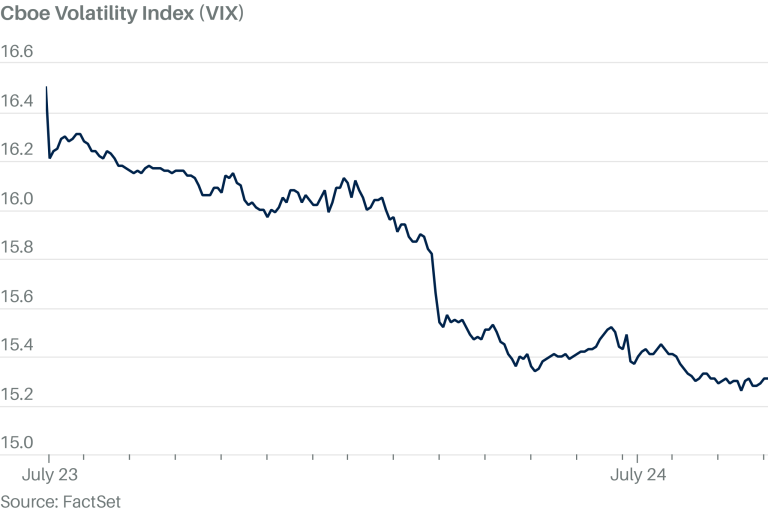Britain is edging towards the creation of a post-Brexit youth visa scheme with the EU, as UK ministers race to contain a potential political backlash to such a deal ahead of a crucial summit next month.
Brussels is insisting on launching negotiations on a “youth experience scheme” when Britain and the EU hold “reset” talks at the London summit on May 19, but the issue is controversial in the UK.
Ursula von der Leyen, European Commission president, discussed migration policy with Sir Keir Starmer, UK prime minister, in 45 minutes of talks in London on Thursday, which also focused on a new security and defence pact.
EU diplomats said a scheme to allow under-30s from the EU to spend up to three years in the UK and vice versa forms a critical part of the bloc’s draft mandate for talks.
UK government officials did not deny that Von der Leyen raised the issue, and Downing Street declined to rule out the youth visa scheme on Thursday, saying only it would not provide a “running commentary” on talks. An EU official said they had discussed all issues related to the summit.
In a bid to manage the political risks domestically, ministers are planning to bring out a long-awaited migration white paper ahead of the May 19 summit, setting out the Labour government’s plans to bring down net migration further.
“The timing is important,” said one British official. “If we’re going to be saying some warm things about youth mobility at the summit, it’s important we reassure the public that we are bringing migration down.”
The numbers for legal migration, which make up the bulk of entries into the UK, are already falling from record highs because of a clampdown introduced under the previous Conservative government.
Tory leader Kemi Badenoch said she was “very concerned” about the development. “Right now they’re unable to solve the small boats crisis,” she said. “This is creating another avenue which people might use to game the system.” Migration is also a central theme of Nigel Farage’s Reform UK party.
A more modest youth visa scheme, capped and time-limited, is being pushed by scores of Labour MPs and peers in Starmer’s own party, but the Tories claimed it could lead to abuses of the system.
British officials expect Starmer to agree a communique with EU chiefs at the summit on May 19 committing both sides to start talks on a number of areas, including some kind of youth mobility scheme. Detailed discussions have not begun and are expected to take months.
Starmer has vowed not to allow a return of free movement, anxious that it could fuel support for the rightwing populist Reform party. The UK premier has also promised to cut net migration.
Germany’s ambassador to the UK Miguel Berger said on Thursday that what the EU called a “youth experience scheme” was vital to recreate the “fabric of personal relationships” that was damaged by Brexit.
“I always hear this is a kind of freedom of movement through the back door — no it is not because it would be driven by visas,” he told an evidence session of the cross-party UK Trade and Business Commission.
Berger said he expected the May 19 summit to agree a communique that would act as “the starting point for negotiations” on a range of issues relating to the EU-UK reset, adding that he hoped they could be wrapped up by the end of the year.
Berger said he expected a youth experience scheme to be in the text, along with discussions on issues including energy co-operation, fisheries, students and the removal of barriers to trade in food products.
The centrepiece of the summit in London will be the agreement of a UK-EU security and defence pact, which was at the heart of discussions between Starmer and Von der Leyen.
Downing Street said “positive progress” had been made to prepare the meeting, a landmark summit between the two sides almost nine years after Britain voted to leave the EU.
A Downing Street spokesperson said on Thursday that Starmer and Von der Leyen had “asked their teams to continue their important work in the coming weeks, with the aim of delivering as ambitious a package as possible at the first UK-EU summit next month”.
To clear the way for the security pact, which will allow British companies to access a new €150bn defence fund, Starmer is expected to agree to a rollover of existing EU fishing rights in UK waters, averting a clash with France and other coastal states.
The EU has already trimmed some of its demands on a “youth mobility” deal and renamed it a “youth experience” scheme to emphasise its temporary nature. It originally wanted a four-year limit and has accepted UK beneficiaries could live and work in all 27 member states, rather than just one.
“There can be no package deal without youth mobility,” said one EU diplomat, while a second said it must be part of the reset, setting the scene for months of haggling and trade-offs.
The diplomat said it could be tied to mutual opening in areas the UK favours, including removing obstacles that make it hard for British musicians and other performers to undertake European tours.
Other British demands also include the mutual recognition of professional qualifications, allowing skilled British workers such as surveyors and engineers to practice in the EU, and the ability for businesses to post staff on short-term placements more easily.
Some 70 Labour MPs and peers signed a letter to Nick Thomas-Symonds, the UK minister overseeing negotiations with the EU, calling for a time-limited and capped youth visa scheme.
Yvette Cooper, UK home secretary, has argued that any person staying longer than one year will be counted in Britain’s net migration figures, which she has pledged to bring down.
Rachel Reeves, UK chancellor, backs the concept and said on Wednesday that discussions on a potential scheme were “ongoing”.







